PHOTO: Denise Truscello/Getty Images
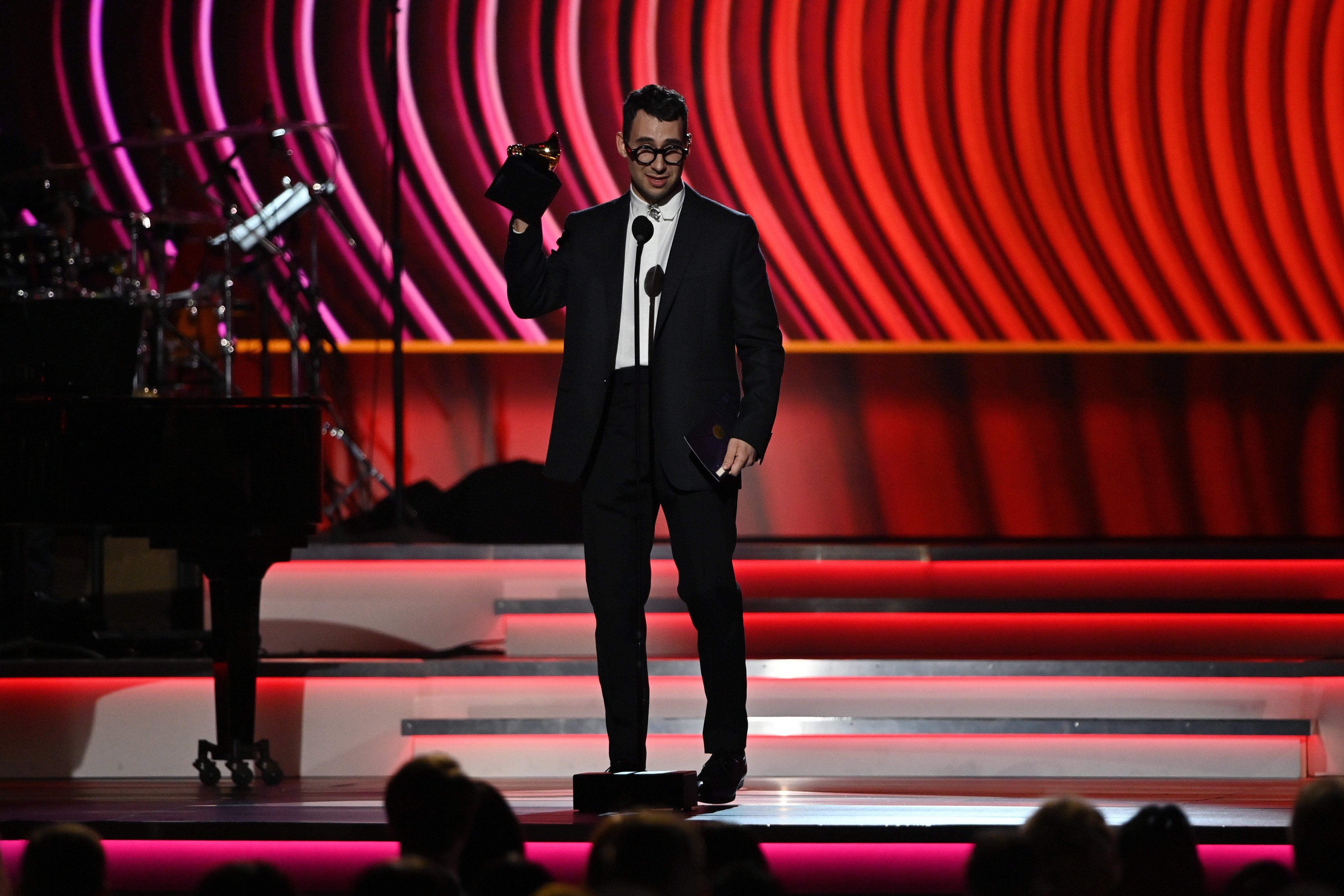
news
Jack Antonoff Wins Producer Of The Year, Non-Classical | 2022 GRAMMYs
Jack Antonoff wins Producer Of The Year, Non-Classical at the 2022 GRAMMYs for his work with Lana Del Rey. Taylor Swift, St. Vincent and others
Jack Antonoff won the GRAMMY for Producer Of The Year, Non-Classical at this year’s award ceremony. This is the Antonoff’s — whose work this year includes songs by Lana Del Ray, St. Vincent, Taylor Swift, Lorde, Bleachers and Clair — first win of the night and sixth total GRAMMY of his career.
"This is for all the people who sit at home and make s*** that they think is really cool and keep making it and keep making it," Antonoff said onstage at the Premiere Ceremony. "I’m really at a loss, man. It’s the coolest, it means the world to me.”
Rogét Chahayed, Mike Elizondo, Hit-Boy and Ricky Reed were the other nominees in the prestigious category.
Check out the complete list of winners and nominees at the 2022 GRAMMYs
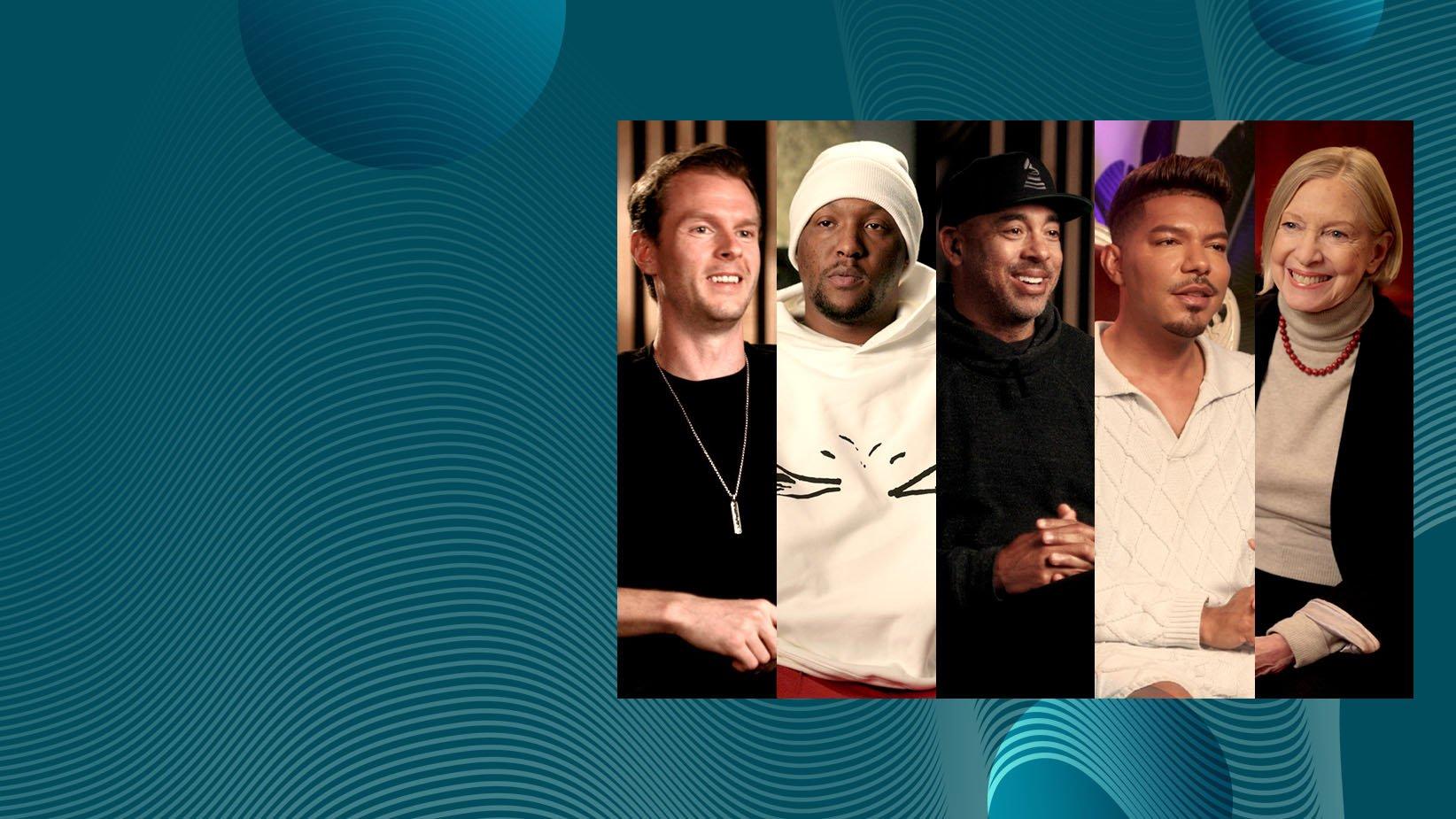
Photos Courtesy of the Recording Academy
news
The New GRAMMY GO Music Production Course Is Now Open: Featuring GRAMMY Winners Hit-Boy, CIRKUT, Judith Sherman & More
Enrollment is now open for GRAMMY GO's new specialization, "Music Production: Crafting Award-Worthy Songs," featuring appearances by GRAMMY winners and nominees. Learn music production and creative strategies from today's industry leaders.
Editor’s Note: Updated to add the Instagram Live video featuring Harvey Mason jr. and Stevie Mackey.
The Recording Academy continues its mission to empower music's next generation with the launch of its second specialization in the GRAMMY GO platform: "Music Production: Crafting Award-Worthy Songs."
This new course, a partnership between the Recording Academy and leading online learning platform Coursera, aims to bolster the technological and audio skills of music producers of all levels. The course, taught by Howard University professor and GRAMMY nominee Carolyn Malachi, features appearances by three-time GRAMMY winner and rap icon Hit-Boy, chart-topping and GRAMMY-winning producer/songwriter CIRKUT, artist and celebrity vocal coach Stevie Mackey, five-time GRAMMY nominee and Recording Academy CEO Harvey Mason jr., and 15-time GRAMMY winner Judith Sherman.
Enrollment for "Music Production: Crafting Award-Worthy Songs" is open now.
Mixing a unique blend of theory and practice, the course teaches music creators of all levels the advanced skills and tools to develop the mindset and confidence of an experienced producer and produce songs of the highest industry standards across all genres. Explore the wide-ranging roles of a music producer, develop critical listening and analysis skills, and master the technical aspects to create music and compositions that cut through the noise. The course's applied learning approach allows learners to sharpen their pre-production skills, utilize Digital Audio Workstations (DAWs) effectively, and produce vocals, instrumentals and samples collaboratively. Through critical listening exercises and discussions, learners will refine their abilities to deliver professional-quality demos.
To celebrate the launch, the Recording Academy hosted an Instagram Live session on Tuesday in which guests Harvey Mason jr. and Stevie Mackey discussed the evolving role of music producers, strategies for working with artists, key elements of top-notch productions, common mixing mistakes, tips for keeping the creative process fresh, and enrollment details for the course.
Building on the success of its first specialization, "Building Your Audience for Music Professionals," GRAMMY GO continues to offer industry-focused education tailored for emerging and established music creators and professionals alike. The innovative platform provides learners with real-time insights from leading music industry figures, ensuring the content remains practical and up to date. GRAMMY GO will also serve as an essential tool in the Recording Academy's global expansion into Africa and the Middle East, empowering music creators through enhanced training, bridging knowledge gaps, and fostering connections within the global music community.
Launched in April in partnership with Coursera, GRAMMY GO is the Recording Academy's first creator-to-creator platform, offering innovative courses tailored for both emerging and established music professionals. The initiative accelerates the Academy's global mission and reinforces its commitment to music education, providing a seamless bridge between all Academy initiatives.
Learn more about GRAMMY GO and the "Music Production: Crafting Award-Worthy Songs" and "Building Your Audience for Music Professionals" specializations.
Watch the Instagram Live session with Harvey Mason jr. and Stevie Mackey in full below:
More Music Education News & Initiatives
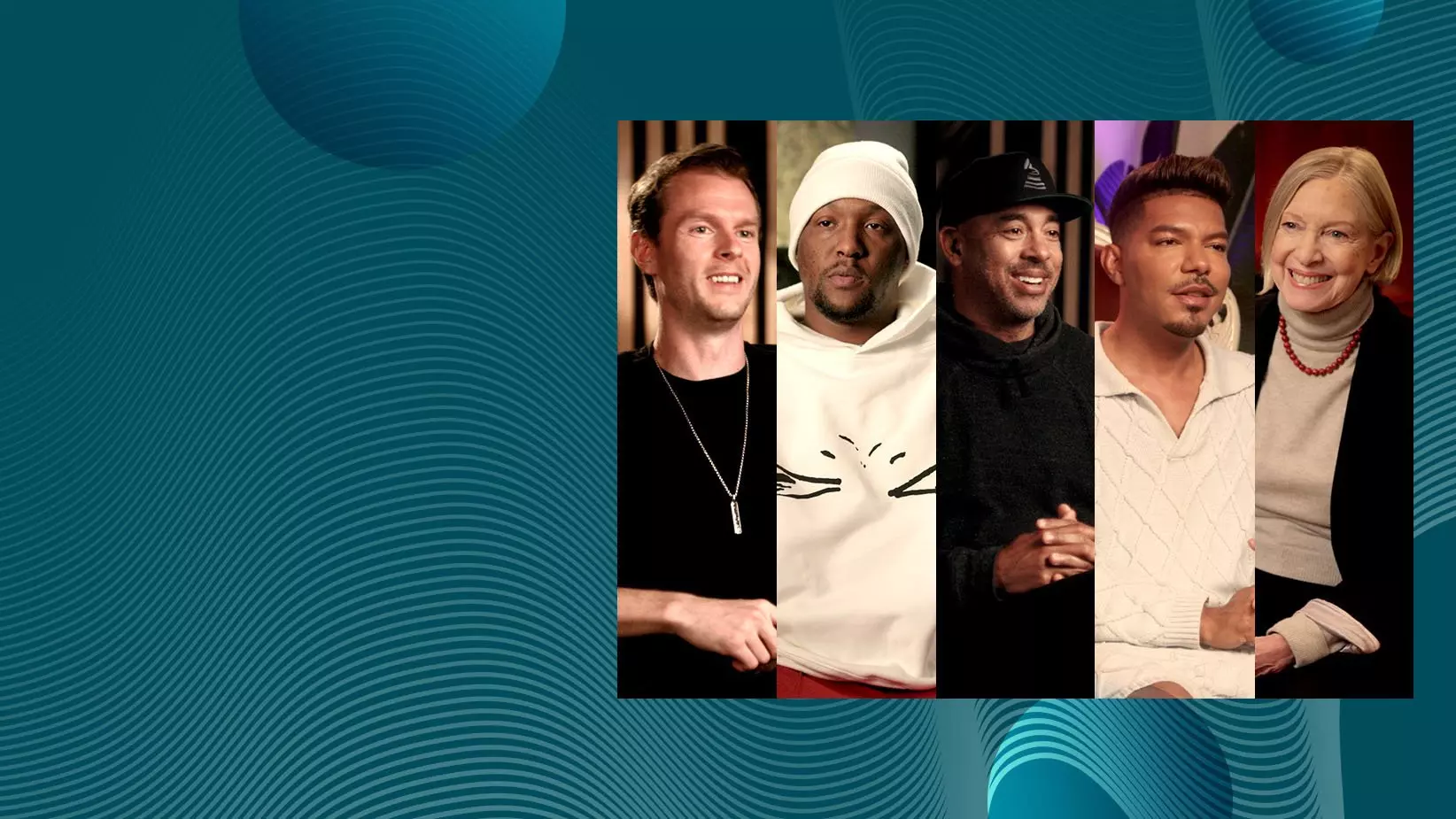
The New GRAMMY GO Music Production Course Is Now Open: Featuring GRAMMY Winners Hit-Boy, CIRKUT, Judith Sherman & More
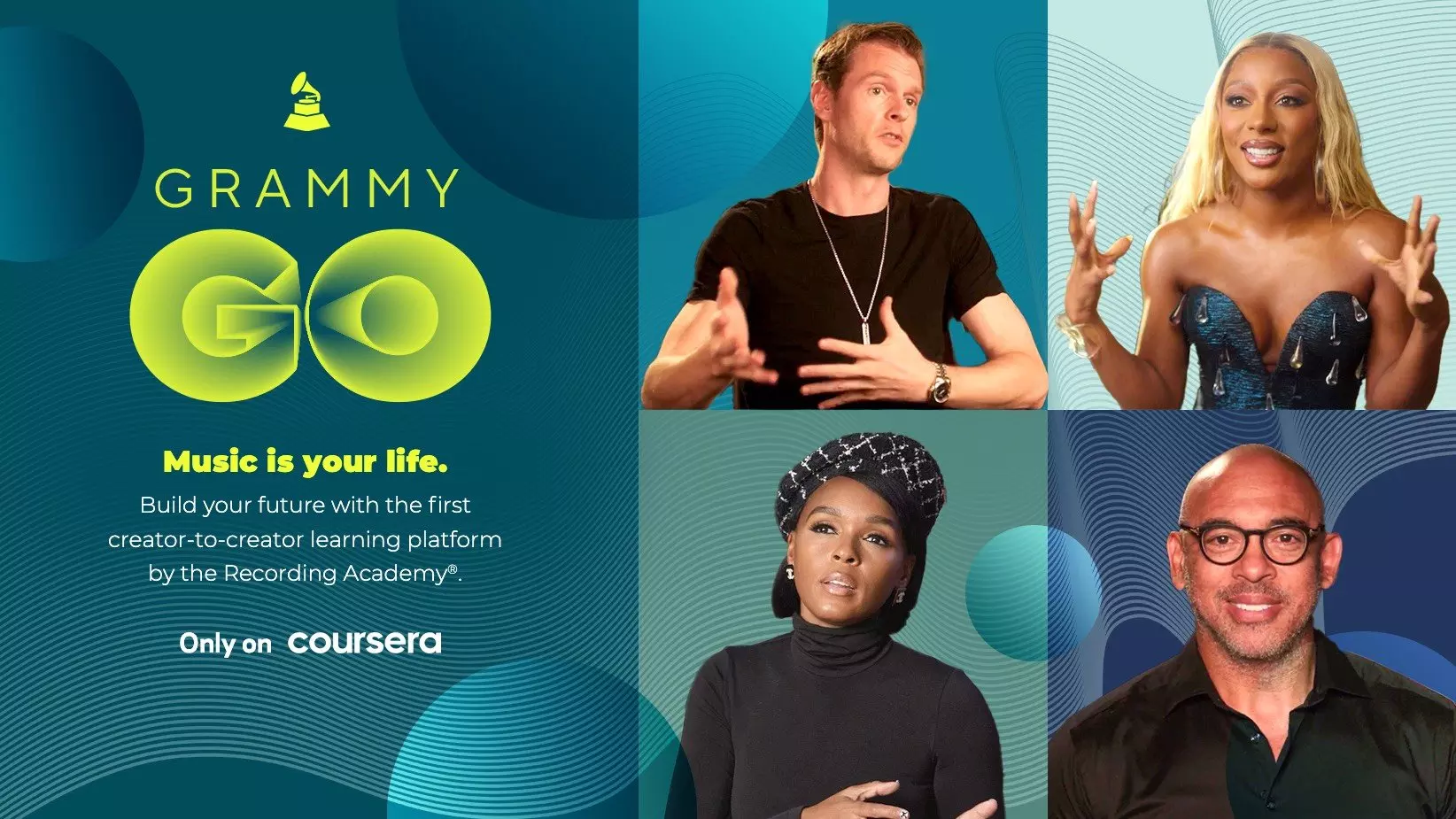
Recording Academy & Coursera Partner To Launch GRAMMY GO Online Learning Initiative
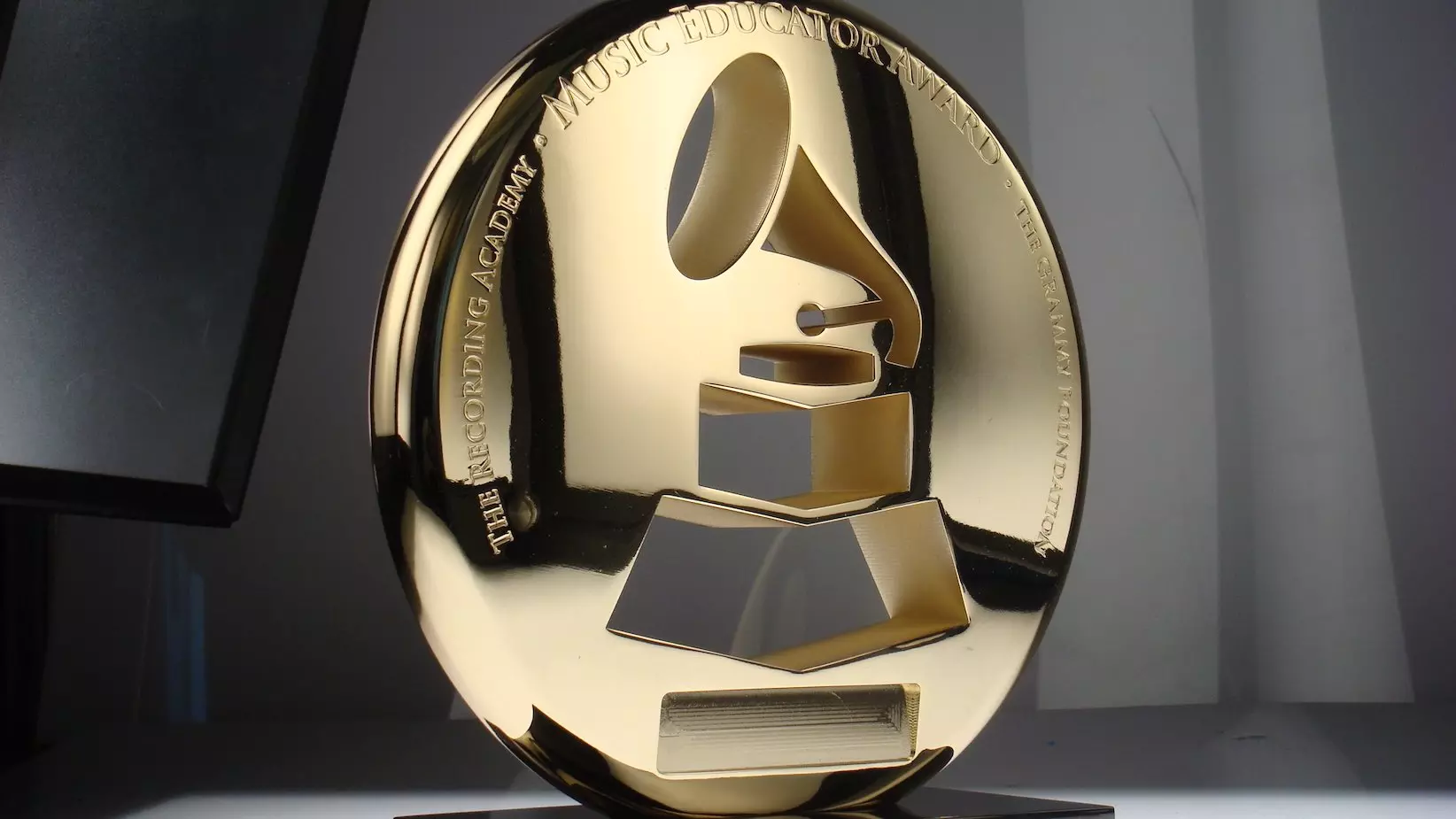
25 Semifinalists Announced For The 2024 Music Educator Award
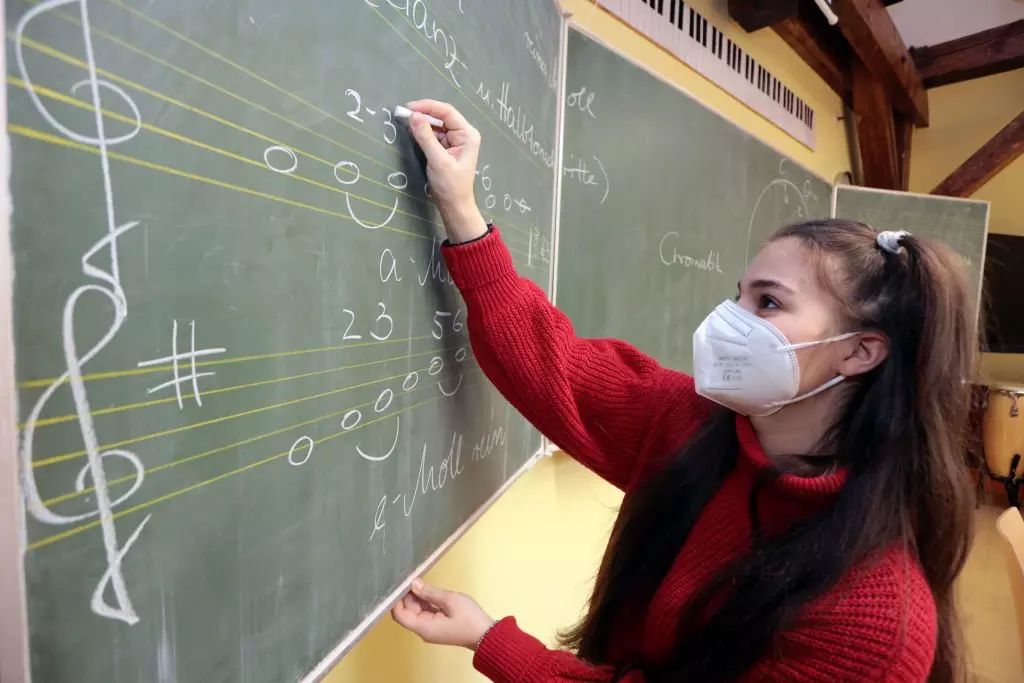
5 Music Teachers Share The Transformative Power Of Music Education
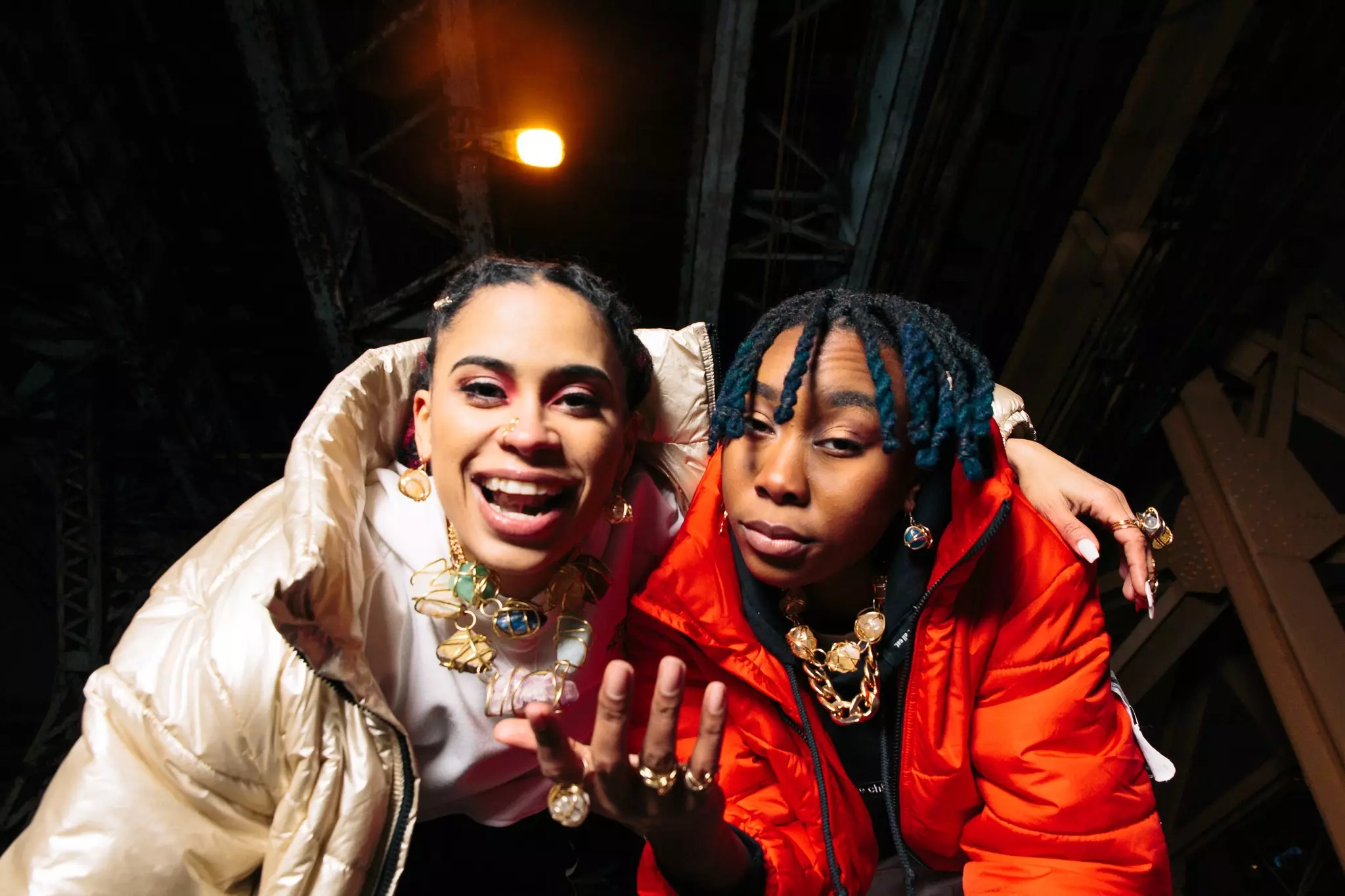
Meet Mother Nature, The Chicago Rap Duo That Teach & Live Self-Expression Through Their Miseducation Of HipHop Youth Workshops
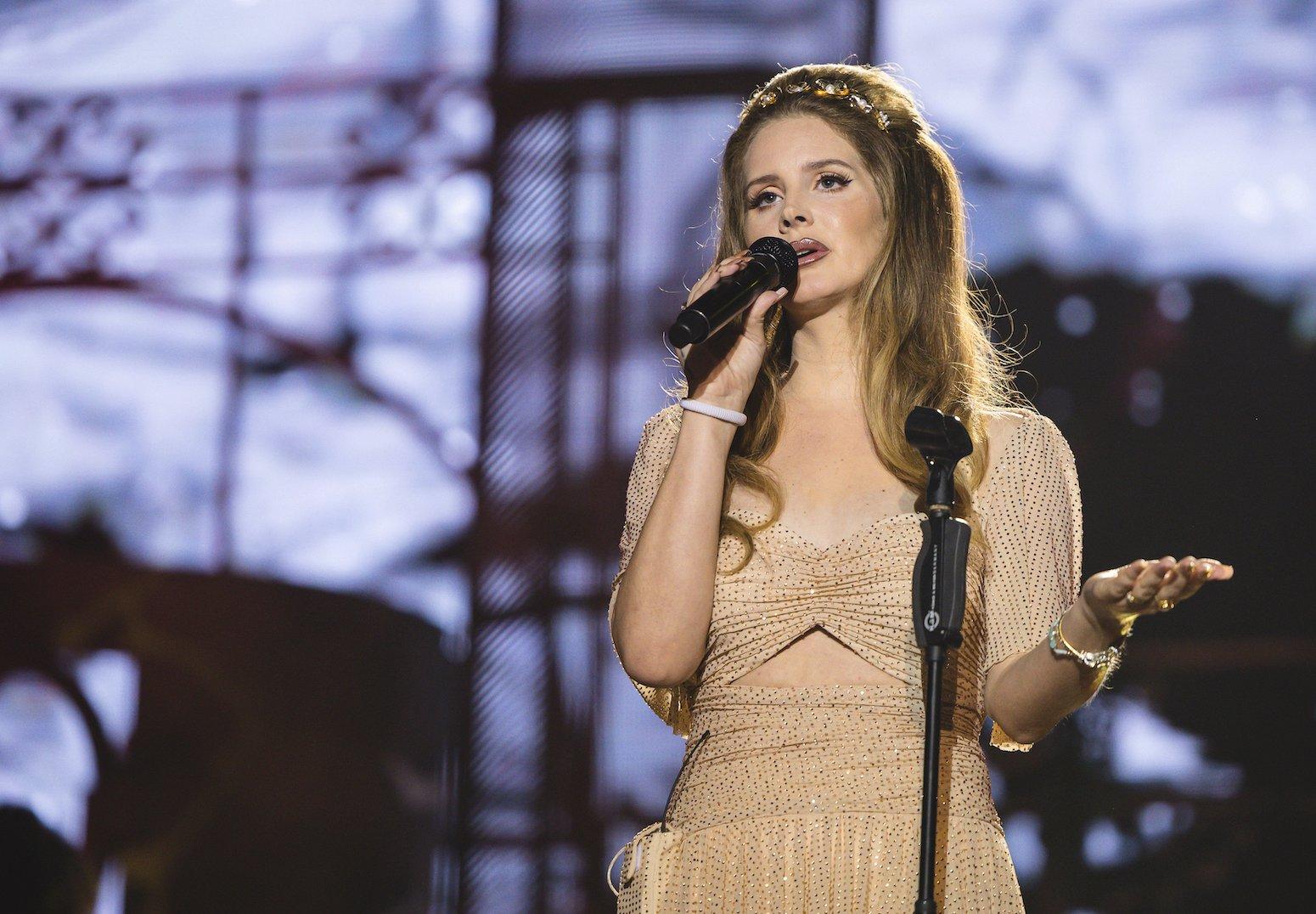
Photo: Xavi Torrent/Redferns
list
Levels Of Lana: 12 Songs To Explore Lana Del Rey's Career For Every Kind Of Fan
As Lana Del Rey's third album, 'Ultraviolence,' turns 10, build — or expand — your knowledge of the melancholy pop queen's catalog.
When it comes to exploring Lana Del Rey's discography, it can be hard to know where to start. The pop songstress has a sprawling catalog, consisting of nine albums, four EPs, and a handful of other standalone singles.
You could begin with Born To Die, her highly influential major label debut, or its moody follow-up, Ultraviolence, her first to top the Billboard charts and ultimately establish her staying power as an artist. Perhaps you choose to start with her Album Of The Year GRAMMY nominees Norman F—ing Rockwell! or Did you know that there's a tunnel under Ocean Blvd.
Or maybe you're an incredibly diehard fan with encyclopedic knowledge who wants to start where it all began, on Rey's first album Lana Del Ray (note the spelling difference), which never saw official physical release and contained just a rough draft of the cultural force Del Rey would become.
Following Del Rey's career is rewarding, but requires some commitment to listen to, and understand, everything she's put out. It can be intimidating to approach an artist with such a robust, varied catalog. You can go with more mainstream pop offerings like her collaborations with Taylor Swift and The Weeknd, or dive into something more inspired by the orchestra like early track "National Anthem." This is true for fans with any amount of exposure to Del Rey, from those just discovering her music to those looking to become an expert.
As Ultraviolence turns 10, GRAMMY.com presents the levels of Lana, a series of jumping off points to explore all the music Del Rey has to offer. Dig into three songs across four different levels of fandom — Beginner, Intermediate, Expert, and Diehard — to further your Lana knowledge. These songs give a peek into various aspects of Del Rey's body of work, and serve as encouragement to continue exploring.
Beginner
"Summertime Sadness," Born to Die (2012)
The Beginner Level of Lana is for those who have heard of Del Rey, but have never sat down with her music before. This makes "Summertime Sadness," her biggest song to date, the perfect place to start.
It's reductive to simply label Del Rey's oeuvre "sad girl music," but for the uninitiated, it's a simple descriptor to start with. "Summertime Sadness" combines the pop production, elements of classical music, and existential despair that is present throughout Del Rey's career. And Cedric Gervais' remix has turned "Summertime Sadness" into a club banger to help her appeal to those who gravitate more to the dance floor.
"Young and Beautiful," The Great Gatsby: Music from Baz Luhrmann's Film (2013)
It speaks to Del Rey's cultural reach and musical vision that a non-album single is one of her most iconic songs. Written for the 2013 The Great Gatsby movie adaptation, "Young and Beautiful" also serves as a helpful thematic introduction to Del Rey.
Throughout her writing, Del Rey examines youth, Americana, and the American Dream, and how each of these uniquely American ideals are full of decay and liable to corruption and disappointment. On "Young and Beautiful," she asks if her lover will still care when she's no longer either of those things, and the somber tone indicates the likely answer. This song will introduce fans to Del Rey's penchant for using orchestral backing for her music, and illustrate how intertwined with popular culture she really is.
"Mariners Apartment Complex," Norman F—ing Rockwell! (2019)
The past two songs have introduced Del Rey's "sad girl" persona, but over the years, she has evolved far past being so easily defined. "Mariners Apartment Complex" is the perfect next step for beginners, opening up the popular perception to her to reveal more of her complexity.
Lyrically, it finds Del Rey pushing back on sorrow being her only emotion. Musically, it's a great introduction to more of the ethereal, synth-filled sound that has come out of her partnership with superproducer Jack Antonoff. And in terms of placing her within the culture, "Mariners Apartment Complex" is the first single from her sixth album Norman F—ing Rockwell!, which earned Del Rey her first Album Of The Year nomination in 2019.
Intermediate
"Brooklyn Baby," Ultraviolence (2014)
At the Intermediate level, it's time to start getting into more of the nuances that Del Rey brings to her writing — and, in turn, how much she's influenced her peers, and how respected she is amongst them.
"Brooklyn Baby" is some of her sharpest writing, equal parts playful needling and affectionate tribute to the snooty New York art scene. One of the most indelible tracks off of Ultraviolence, the song epitomizes the entire record's move towards more rock instrumentation, with a guitar-based sound. It references legendary rock artist Lou Reed, who was slated to appear on the track before his death in late 2013, showing just how highly she's thought of by other artists.
"Love," Lust for Life (2017)
For as much as Del Rey recognizes how fallible many of our culture's ideals are, she's always been a romantic. "Love," the first single from 2017's Lust for Life, is a prime example of this.
The whole album is a big play on her love of classic Hollywood imagery, including the video for "Love," and the song is a dreamy throwback to '50s love songs. If "Mariners Apartment Complex" chides anyone thinking Del Rey can only be sad, "Love" is a full rebuke, as it's one of her most straightforwardly optimistic tracks. Commercially, "Love" was Del Rey's highest-charting feat since Ultraviolence (landing at No. 44 on the Billboard Hot 100), further establishing that she had longevity.
"Chemtrails over the Country Club," Chemtrails over the Country Club (2021)
2020 and the pandemic did a number on everyone, radically altering lives and shaking faith in many of the institutions of everyday life. That unmooring is felt on Del Rey's seventh album, Chemtrails over the Country Club, and particularly on its title track.
Del Rey is as sharp as ever in exploring the pulse of American society on the dreamy, disaffected number. "You're in the wind, I'm in the water/ Nobody's son, nobody's daughter" is a breathtaking piece of writing that became a TikTok favorite, illustrating Del Rey's continuing ability to relate to the youth.
Expert
"F—ed My Way Up To the Top," Ultraviolence (2014)
As we enter the realm of the Expert Lana Del Rey fan, we're firmly out of album singles territory. From here, it's all deep cuts and non-album tracks.
Del Rey has been no stranger to controversy — some warranted, some not. An early knock against her was that the mid-20th century aesthetic and perceived submissiveness in her music was anti-women or anti-feminist, a surface-level reading that in the years since has been largely dispelled.
The singer has worked to combat it herself on tracks like Ultraviolence's "F—ed My Way Up To the Top," which takes that perceived notion to its extreme. At the same time, it's another in a long line of tracks in which Del Rey has embraced her own sexuality and sensuality as something to be celebrated and claimed, not something to be ashamed of.
"Art Deco," Honeymoon (2015)
2015's Honeymoon isn't necessarily underappreciated, as it received positive reviews upon release debuted at No. 2 on the Billboard 200, but "Art Deco" isn't likely to appear on many playlists. It should, though, as the track illustrates how much of musical chameleon Del Rey really is, with a sultry, hip-hop inspired rolling beat.
It treads some familiar territory thematically with trying to find acceptance in night life, but Del Rey is really comfortable here. She shows more of her knowledge of art history by relating the subject of the song to the defining characteristics of the titular art movement, revealing just how much thought she puts into her aesthetic.
"Fingertips," Did you know that there's a tunnel under Ocean Blvd (2023)
Did you know that there's a tunnel under Ocean Blvd is arguably Del Rey's most intimate album, exploring details of her family and their history that fans have only previously seen brief glimpses of. At the same time, it is partially an examination of her own legacy and work, only natural for someone with as much output as Del Rey, let alone her frequent references to death and finality.
Both of these things combine in "Fingertips," a standout track from the album. A nearly six-minute long ballad, it's musically airy while emotionally devastating — and, for a true Del Rey fan, encapsulates so much of her legacy in just one song.
Diehard
"Yayo," Paradise (2012)
For fans in the Diehard level, everything before is old news. This is for fans who want to fully live the Lana life, who have all her albums on vinyl and have carefully built their image and fashion around her.
Speaking of her image, this section starts with "Yayo," an extremely early deep cut. This track originally appeared on Lana Del Ray before being reworked and rereleased on the Paradise EP in 2012. The song leans heavier than most into the '50s imagery and floats along at a dreamy, lilting pace. While not as refined as her later work, "Yayo" is an indicator Del Rey had a solid idea of who she wanted to be as soon as she started.
"Season of the Witch," Non-album Single (2019)
Del Rey has done several covers throughout her career, and quite successfully. Norman F—ing Rockwell! features her cover of Sublime's "Doin' Time," which is one of the highlight tracks from the record. Less known is Del Rey's spooky cover of '60s classic "Season of the Witch."
Written for the 2019 horror film Scary Stories to Tell in the Dark, the song fits Del Rey's style perfectly. The Americana/flower crown aesthetic of her younger years always leaned witch-adjacent, and Del Rey takes her soft vocals into playfully sinister territory. It's a fun cover, and shows just how many gems Del Rey has in her discography for those fans willing to dig.
"Say Yes to Heaven," Non-album Single (2023)
"Say Yes to Heaven" was never supposed to be heard. A late cut from Ultraviolence, the track remained buried for years before being leaked in 2016. It lurked on the internet, only known to superfans, before gaining steam with the rise of TikTok and finally seeing an official release in 2023.
The deep cut is peak Del Rey ballad material, a tender love song imploring her partner to accept happiness. It's another rebuke of the idea that she can't be happy, and it gives insight into some of her earlier writing.
As a resurfaced older track, "Say Yes to Heaven" may not necessarily indicate the direction Lana Del Rey is set to go on her forthcoming album, Lasso (especially considering Del Rey has teased she's "going country" for her next release). But it's a beautiful reminder of the affecting narratives and arresting vocals that have made her beloved to so many, no matter the level of fandom.
Songbook: A Guide To Billie Eilish's Musical Ventures & Artistic Ingenuity
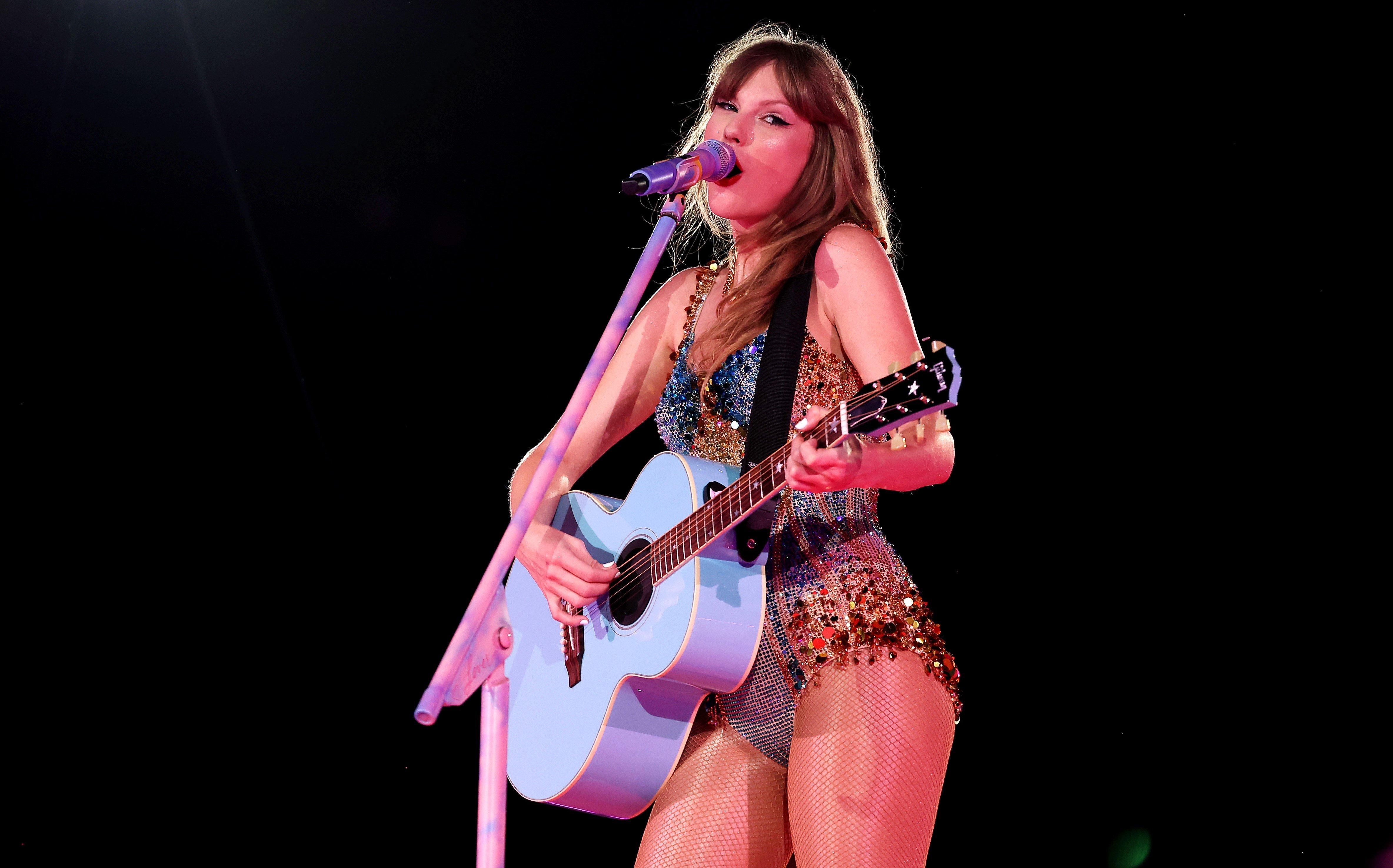
Photo: Don Arnold/TAS24/Getty Images for TAS Rights Management
list
Taylor Swift's 'The Tortured Poets Department' Is A Post-Mortem Autopsy In Song: 5 Takeaways From Her New Album
"There is nothing to avenge, no scores to settle once wounds have healed," Taylor Swift wrote of her new album. From grapplings with fame to ultra-personal reflections on love lost, her latest set of fountain and quill pen songs marks the end of an era.
"All’s fair in love and poetry," Taylor Swift declared when she announced her 11th studio album, The Tortured Poets Department, at the 66th GRAMMY Awards.
Taken from the proverb "All’s fair in love and war," the pop phenom gave us a fair warning: there’s no limit to what she’ll go through to achieve her ends.
On the freshly released The Tortured Poets Department, Taylor Swift has a few things to get off her chest — so much that it required a surprise second record, The Tortured Poets Department: The Anthology, adding an additional 15 songs. The sprawling album is a masterclass in songwriting and so personal that it's analogous to performing a post mortem autopsy; The musical shapeshifter is here to exhume the tortured poets of her past and make peace with them.
In an Instagram post, Swift called the record an anthology that reflects "events, opinions and sentiments from a fleeting and fatalistic moment in time - one that was both sensational and sorrowful in equal measure." With the release of Tortured Poets, "there is nothing to avenge, no scores to settle once wounds have healed…our tears become holy in the form of ink on a page."
Describing Swift’s work as a collection of tracks about boys and break-ups has always felt underbaked and disingenuous, but much of The Tortured Poets Department is just that. In true Swiftian fashion, she plays on preconceived theories, opting to toy with the five stages of grief — denial, anger, bargaining, depression, and acceptance — after a break-up, bringing listeners along on a peregrination exploring the depths of her relationships and personal growth.
Analyzing her feelings to craft songs is muscle memory at this point, but with every release Taylor Swift somehow does so with a refreshed and reimagined perspective. The stories she shares with her fans in TTPD might’ve made her feel like she died, but she’s a revenant no longer tortured by the whims and words of other poets.
With The Tortured Poets Department open for business, read on for five key points to consider when listening to Taylor Swift’s new album.
It's Much More Than A Break-Up Record
Although the record orbits around a break-up, The Tortured Poets Department demonstrates Swift's ability to shapeshift as a songwriter. A song about a break-up is layered, typically forcing Swift to unveil her own flaws while wearing her broken heart on her sleeve.
The fifth track on a Taylor Swift album is typically the most emotionally cutting, and "So Long London" is no exception. On the standout track, Swift views the loss of her lover and the breakdown of her relationship to Joe Alwyn through the lens of the city they once shared together. It’s a cathartic release for Swift who point-blank notes the pain they inflicted upon her and how, in turn, they ended up just as heartbroken as she is.
The high-spirited "Down Bad" and subdued "The Smallest Man in The World" are two sides of the same coin. The former is hopeful that a love could be reignited, whereas the latter sees Swift at her grittiest, pointing the finger at her former lover. "Smallest" poses a series of questions, accusing her ex of being a spy who only wanted to get intel on her.
On piano ode "loml," Swift looks back at the "get-love-quick" schemes she first wrote about in "Why She Disappeared," a poem for reputation. The poem originally considered the death of her reputation and how its aftermath made her stronger while she was simultaneously nursing a new relationship.
The track has a similar energy to fan favorite "All Too Well," but is even more accusatory — seemingly unlocking another level of her songwriting prowess as she teeters between seething rage and mourning with lines about picking through a "braid of lies" spewed by a partner who "claimed he was a lion" but is really a coward. While Swift is honest about never feeling a loss so deeply, she maturely accepts that the effort she put into keeping the relationship afloat was all she could do. It’s distinctly different from the battles she bravely fought in "The Great War," "Daylight" and "long story short."
She's Grappling With Fame & Owning Her Choices
That Taylor Swift struggles with her own celebrity and the public's perception is nothing new. On reputation’s album prologue, she stated, "We think we know someone, but the truth is that we only know the version of them they have chosen to show us."
On The Tortured Poets Department, Swift has never been more honest about her feelings towards those who claim to know better than she does. On "But Daddy I Love Him," she doubles down on these frustrations, taking aim at self-righteous "vipers" and "judgmental creeps" who condemn her choice of a lover. Swift holds nothing back, declaring "I'll tell you something about my good name/It's mine alone to disgrace."
Swift stated that her life sometimes feels like a public autopsy with people psychoanalyzing her every thought and feeling. Following the release of Midnights and her larger-than-life Eras Tour, Swift’s been in her "glittering prime" despite experiencing her long-term relationship ending and the media hysteria around it would make anyone feel the opposite. "I Can Do It With A Broken Heart" confirms fans' theories that the GRAMMY winner was indeed putting on a brave face.
On "Clara Bow" — a song named for the silent film actress whose public life was so scrutinized that she admitted herself into a sanatorium — Swift sings "Beauty is a beast that roars/Down on all fours/Demanding, 'More.'" Again, Swift plays with the double-edged sword of fame, comparing herself to a performing circus animal — something she sings about in "Who’s Afraid Of Little Old Me?"
Taylor Swift Gets By With A Little Help From Her Friends
Swift has always looked up to and honored the greats in her music and art, and Tortured Poets is no exception. She recruits rock icon and songwriter Stevie Nicks to help build TTPD’s world, and Nicks penned a poem featured in Swift’s physical album. Written in Texas, the poem is "For T and me..." and tells the tale of two ill-fated lovers. (Swift also namedrops Nicks in "Clara Bow," touching on the comparisons made between Clara, Nicks and herself.)
There are two additional guest appearances on TTPD: Post Malone appears on "Fortnight" and Florence Welch of Florence + the Machine is featured on "Florida!!!" (a surprisingly toned-down lead single). Swift particularly shines when paired with Welch, and the soaring "Florida!!!" sees their intertwined vocals creating a sound as infectious as the "drug" they sing about.
J.M. Barrie’s Peter Pan inspired Swift on "cardigan" ("Tried to change the ending/Peter losing Wendy") but now the Lost Boy gets his own track on The Anthology’s "Peter." The ever-inquisitive Swift pleads, "You said you were gonna grow up/Then you were gonna come find me" and confronts this man who wouldn’t grow up. She even puts herself in the shoes of Wendy who waited for Peter Pan to return but has grown tired of waiting.
TTPS Is All Quill And Fountain Pen Songs
A few years ago, Taylor Swift categorized her songwriting according to three writing devices: glitter gel pens for fun tracks, fountain pens for songs using modern imagery and lyrics, and quill pens for tracks with flowery, figurative language. Although devoid of the glittery gel pen songs that comprise many of Swift's hits, TTPD and its accompanying anthology are steeped in fountain and quill writing.
Most of The Tortured Poets Department are fountain pen tracks — thanks to 2024 Producer Of The Year Jack Antonoff’s sleek pop production and synth use. Tracks like "Fresh Out The Slammer" and "My Boy Only Breaks His Favorite Toys" are sharp, snappy, tongue-in-cheek tales of love affairs about to begin and coming to an end with the same sonic exuberance of past Swift & Antonoff songs, like "Out of the Woods" and "Getaway Car."
Tracks on The Anthology, mostly produced by Aaron Dessner, are stripped-back, folk-tinged quill songs brimming with sorrow and harrowing thematics and dives even deeper into her chaotic psyche. "The Prophecy" sees Swift beg to change a prophecy that has been laid out ahead of her — likely stemming from the pressure of being a global superstar when all she wants is to be loved.
This Is The End Of An Era (Or A Chapter)
To her occasional disdain, Swift's highly personal songwriting has created a global obsession with her inner life. Although she's tired of the "public autopsy," Tortured Poets offers her time to reflect on the "events, opinions, and sentiments" over a time that was equal parts transient and transformative.
From her growth from the country-twanged teen singer on her self-titled debut to woman who is fearless in her pursuit of happiness, love, and peace, Swift has transformed time and time again. By viewing her work in eras — or, in this case, a chapter in a book of her life — it’s clear that Swift sees this current chapter of her life coming to a close, turning the last page and no longer longing to look back.
One could argue that Swift is an unreliable narrator, only ever presenting her side of the story. But she says that while considering the pain described on TTPS, many now-healed wounds turned out to be self-inflicted. With these stories immortalized, Taylor Swift has spoken her saddest story and is now "free of it." The tortured poets and poems will no longer take up space in this next chapter of her life.
Songbook: An Era-By-Era Breakdown Of Taylor Swift's Journey From Country Starlet To Pop Phenomenon
All Things Taylor Swift
Taylor Swift's 'The Tortured Poets Department' Is A Post-Mortem Autopsy In Song: 5 Takeaways From Her New Album
Taylor Swift’s New Album 'The Tortured Poets Department' Is Here: The Tracklisting, Guests, Easter Eggs & More
Songbook: An Era-By-Era Breakdown Of Taylor Swift's Journey From Country Starlet To Pop Phenomenon
Taylor Swift, The 'Tortured Poet': 6 Times She's Used Poetry In Her Work
The Taylor Swift Effect: 8 Ways The Eras Tour Broke Records & Shattered Sales
5 Reasons Why Taylor Swift's Eras Tour Will Be The Most Legendary Of Her Generation
2024 GRAMMYs: Taylor Swift Makes GRAMMY History With Fourth Album Of The Year Win For 'Midnights'
A Timeline Of Taylor Swift's GRAMMYs History, From Skipping Senior Prom To Setting A Record With 'Midnights'
6 Ways Taylor Swift's Eras Tour Took Over Movie Theaters

Watch Taylor Swift Become The First Woman To Win Album Of The Year Twice In 2016 | GRAMMY Rewind
Get Ready For Taylor Swift's ‘The Tortured Poets Department’ Album Release: Everything You Need To Know
10 Must-See Moments From The 2024 GRAMMYs: Taylor Swift Makes History, Billy Joel & Tracy Chapman Return, Boygenius Manifest Childhood Dreams
7 Ways Taylor Swift's '1989' Primed Her For World Domination
11 Artists Who Influenced Taylor Swift: Joni Mitchell, Stevie Nicks, Tim McGraw & More
9 Artists Who Advocate For The LGBTQIA+ Community: Troye Sivan, Taylor Swift, Madonna & More
For The Record: How Taylor Swift's 'Speak Now' Changed Her Career — And Proved She'll Always Get The Last Word
Behind The Scenes Of The Eras Tour: Taylor Swift's Opening Acts Unveil The Magic Of The Sensational Concert
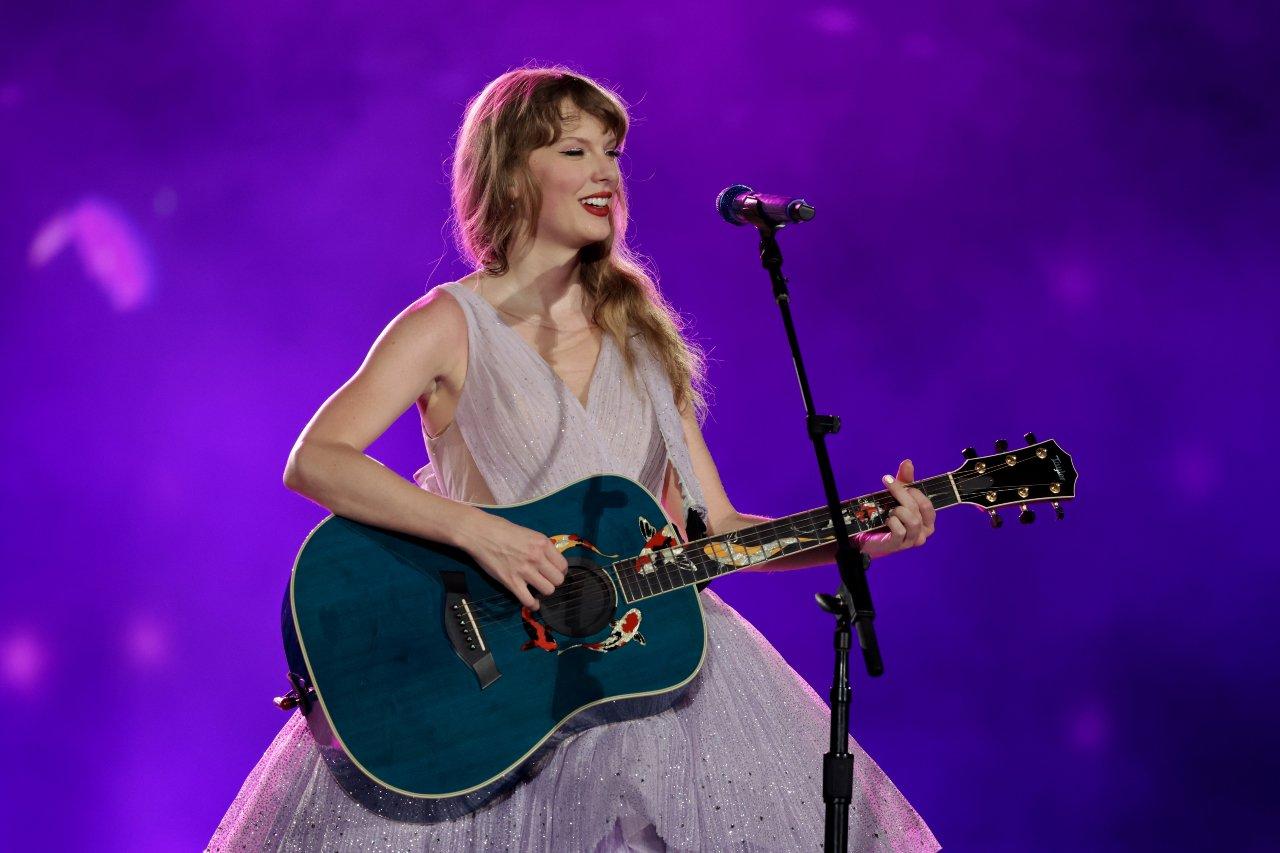
Photo: Ashok Kumar/TAS24/Getty Images for TAS Rights Management
list
Taylor Swift’s New Album 'The Tortured Poets Department' Is Here: The Tracklisting, Guests, Easter Eggs & More
Just over two months after Taylor Swift announced 'The Tortured Poets Department' at the 2024 GRAMMYs, the sprawling, bracingly personal album is here. Before you open the department door, arm yourself with the following knowledge.
We’ll be wandering through this Department for the foreseeable future.
Not only has Taylor Swift unleashed an absolute maelstrom with her 16-song new album, The Tortured Poets Department; she’s dropped a whopping 15 additional tracks via its expanded version, The Tortured Poets Department: The Anthology.
Clearly, there’s an absolute treasure trove here — for Swifties and the merely Swift-curious alike. A mostly downbeat and discursive affair, The Tortured Poets Department feels like the shadow cast by the gilded, giddy, exhilarating Eras Tour, which isn’t over yet. (Which makes all the sense in the world, as she was simultaneously chipping away at the album while crisscrossing the globe.)
If you’re reading this, you’re probably bracing yourself for this long, solemn, darkly funny journey. Don’t go alone: here’s a brief breakdown of what you should know going in. (And keep checking GRAMMY.com, as there’s plenty more Taylor and Tortured Poets coming your way.)
The Tracklisting
As previously reported, here’s the standard tracklist for The Tortured Poets Department:
Side A
"Fortnight" (feat. Post Malone)
"The Tortured Poets Department"
"My Boy Only Breaks His Favorite Toys"
"Down Bad"
**Side B**
"So Long, London"
"But Daddy I Love Him"
"Fresh Out the Slammer"
"Florida!!!" (feat. Florence + the Machine)
**Side C**
"Guilty As Sin?"
"Who’s Afraid of Little Old Me?"
"I Can Fix Him (No Really I Can)"
"Loml"
**Side D**
"I Can Do It With a Broken Heart"
"The Smallest Man Who Ever Lived"
"The Alchemy"
"Clara Bow"
The Expanded Tracklisting
Aside from The Black Dog Edition, The Albatross Edition, The Bolter Edition, and The Manuscript Edition — which consist of the standard edition of the album with its titular bonus track — here are the additional tracks that complete The Tortured Poets Department: The Anthology.
"The Black Dog"
"Imgonnagetyouback"
"The Albatross"
"Chloe or Sam or Sophia or Marcus"
"How Did It End?"
"So High School"
"I Hate It Here"
"thanK you aIMee"
"I Look In People’s Windows"
"The Prophecy"
"Cassandra"
"Peter"
"The Bolter"
"Robin"
"The Manuscript"
The Guests
Physical copies of The Tortured Poets Department feature an original poem by the one and only Stevie Nicks.
Titled "For T and me…," the poem starts off with "He was in love with her / Or at least she thought so / She was brokenhearted / Maybe he was too." It goes on to trace a doomed relationship — one party being "way too hot to handle" and the other "way too high to try."
Elsewhere, Post Malone lends a haunting vocal to opener and lead single "Fortnight," and Florence + the Machine elevate "Florida!!!".
https://www.youtube.com/watch?v=FiqoZyauhdA
The lion’s share of the album was produced by Jack Antonoff; Aaron Dessner handled a handful of tunes on the standard edition and the majority of The Anthology.
The Easter Eggs
Where do we begin? For starters, most of the songs seem to be directed at ex Matty Healy of the 1975, but Joe Alwyn and Travis Kelce seem to pop up here and there as well.
In the title track, Swift describes embracing the "cyclone" of a relationship with a partner akin to a "tattooed golden retriever." And they’d be remiss to compare themselves to Patti Smith or Dylan Thomas or any other famously tortured poet of the 20th century: "We’re modern idiots… we’re two idiots."
Elsewhere, Lucy Dacus of boygenius — and Antonoff himself — pop up ("But you tell Lucy you’d kill yourself if I ever leave / And I had said that to Jack about you / So I felt seen").
Far be it from us to speculate on exact subjects, but there are shades of depression ("You sacrificed us to the gods of your bluest days"), a betrothal that wasn’t to be ("You swore that you loved me but where were the clues? / I died on the altar waiting for the proof") and the racket of fame ("The circus life made me mean").
As usual, Swift has dumped puzzle pieces on the carpet — daring her ardent, global fanbase to start at the edges and work their way to the center. But never to this degree, across such an ocean of material.
Tortured poets — and those who fall in love with them — assemble!
Songbook: An Era-By-Era Breakdown Of Taylor Swift’s Journey From Country Starlet To Pop Phenomenon
All Things Taylor Swift
Taylor Swift's 'The Tortured Poets Department' Is A Post-Mortem Autopsy In Song: 5 Takeaways From Her New Album
Taylor Swift’s New Album 'The Tortured Poets Department' Is Here: The Tracklisting, Guests, Easter Eggs & More
Songbook: An Era-By-Era Breakdown Of Taylor Swift's Journey From Country Starlet To Pop Phenomenon
Taylor Swift, The 'Tortured Poet': 6 Times She's Used Poetry In Her Work
The Taylor Swift Effect: 8 Ways The Eras Tour Broke Records & Shattered Sales
5 Reasons Why Taylor Swift's Eras Tour Will Be The Most Legendary Of Her Generation
2024 GRAMMYs: Taylor Swift Makes GRAMMY History With Fourth Album Of The Year Win For 'Midnights'
A Timeline Of Taylor Swift's GRAMMYs History, From Skipping Senior Prom To Setting A Record With 'Midnights'
6 Ways Taylor Swift's Eras Tour Took Over Movie Theaters

Watch Taylor Swift Become The First Woman To Win Album Of The Year Twice In 2016 | GRAMMY Rewind
Get Ready For Taylor Swift's ‘The Tortured Poets Department’ Album Release: Everything You Need To Know
10 Must-See Moments From The 2024 GRAMMYs: Taylor Swift Makes History, Billy Joel & Tracy Chapman Return, Boygenius Manifest Childhood Dreams
7 Ways Taylor Swift's '1989' Primed Her For World Domination
11 Artists Who Influenced Taylor Swift: Joni Mitchell, Stevie Nicks, Tim McGraw & More
9 Artists Who Advocate For The LGBTQIA+ Community: Troye Sivan, Taylor Swift, Madonna & More
For The Record: How Taylor Swift's 'Speak Now' Changed Her Career — And Proved She'll Always Get The Last Word
Behind The Scenes Of The Eras Tour: Taylor Swift's Opening Acts Unveil The Magic Of The Sensational Concert
